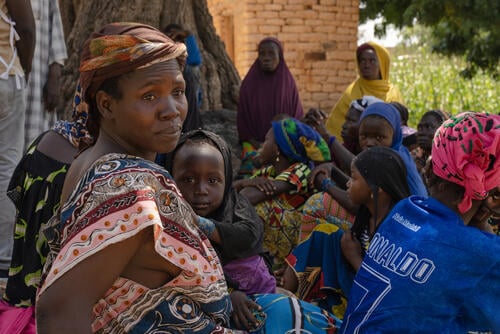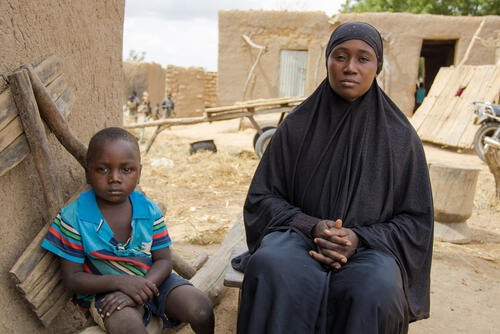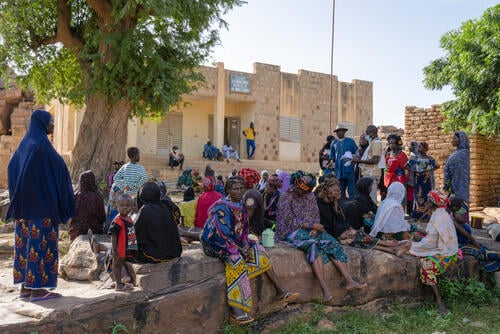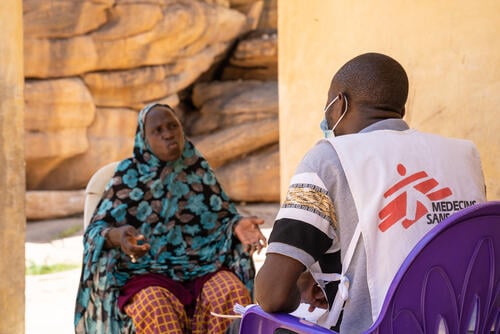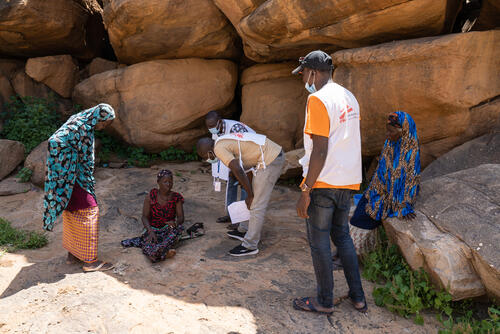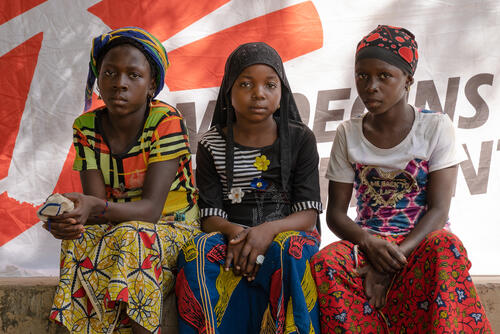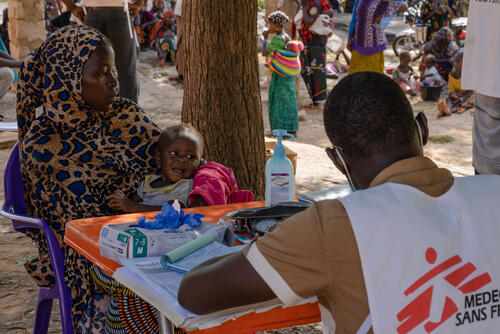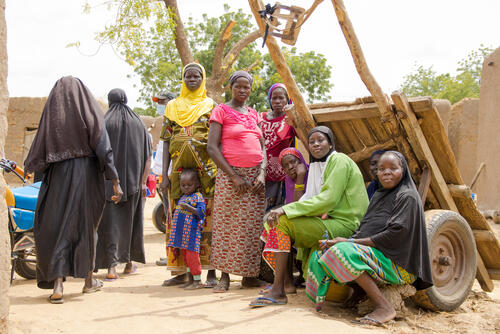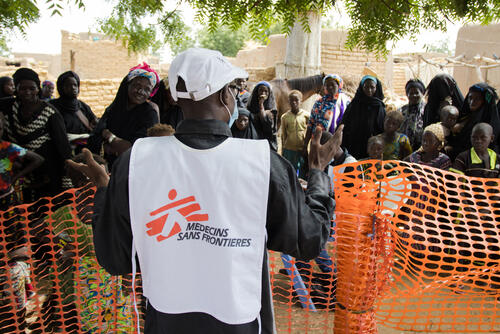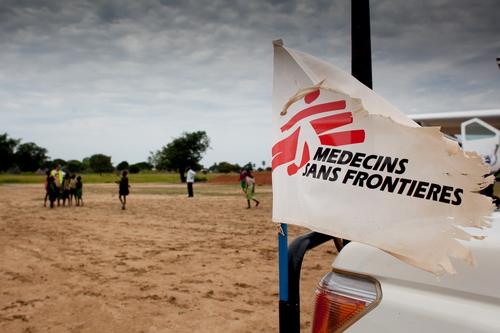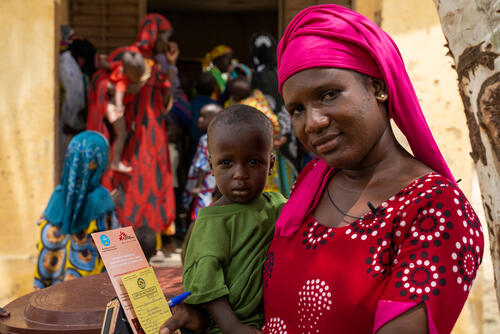Central Mali is now the deadliest region in the country for civilians, as violence has intensified considerably over the past three years. It presents an alarming picture of people injured, of fatalities and of people forced to leave their homes. MSF is working in the region, supporting the health system and reaching out to isolated populations through our model of community healthcare.
“The criminals came to our village during the night and they killed my husband, burned down our house and took all our livestock,” says A., now a widowed mother. “I gathered what was left of our possessions and I fled with my four children. Since that day, my son O. has not stopped crying. Every time he sees a man, he thinks he’s his father.”
A. has brought her son to MSF’s mobile clinic. She and her children have found refuge in a village, 40 kilometres from the town of Koro, in central Mali.
A.’s story is just one in a long series of similar accounts. Central Mali, which borders the Timbuktu region to the north and Burkina Faso to southeast, is now the deadliest part of the country for civilians. Farmers in the communities of Fulani and Dogon farmers are the main victims of the killings, destruction and pillaging.
Violent incidents have not only increased in number but also in seriousness over the last two years. The population of central Mali finds itself trapped between armed groups, self-defence groups and even national or international security forces.These are made up of French military contingents, the MINUSMA (United Nations peacekeeping forces) and G5 Sahel, a joint force formed by five countries (Mauritania, Niger, Chad, Burkina Faso and Mali) to tackle security threats and fight insecurity in the Sahel region.
Added to this, there are local inter-communitarian conflicts. Aware of these rivalries, the armed groups have exploited certain communities to pitch them against each other. As a result of this exploitation in a heavily armed area, violence against civilians is omnipresent and indiscriminate attacks on entire villages are common.
The Malian government is engaged in several armed conflicts with various groups that it has identified as terrorist organisations. The government is supported in its fight against these groups by regional and international contingents. The situation involves overlapping mandates, as well as peacekeeping and the fight against terrorism. Activities by armed groups and certain repressive security measures that have been implemented to fight terrorism have all had an impact on the population. In some cases, civilians have been taken for fighters and criminalised because they belong to a particular ethnic group.
The civilian population, victims of daily violence
In Mopti region, located on the border with Burkina Faso and the states of Gao, Segou and Timbuktu, the national government has lost control of entire areas to armed groups. A climate of violence permeates the daily life of villagers.
According to the International Organization for Migration report of October 2020, 311,193 people are displaced in Mali. Armed groups have forcibly isolated many villages, including Mondoro (Douentza), Diankabou (Koro) or Boulkessi (Douentza), leaving them without access to basic services, especially healthcare. But between January and October 2020, MSF teams in Mopti region supported 56 cut-off or hard to reach villages. In the other villages, residents find themselves unable to move around freely, cultivate their fields or attend markets because of inter- or intra-community conflicts.Intra-community conflicts take place within a single community and inter-community conflicts occur, for example, between Dogon crop farmers and Fulani livestock farmers.
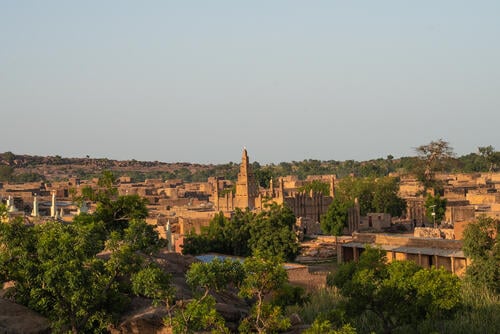
Most of these people must therefore leave their homes and take refuge in neighbouring villages. In October 2020, there were more than 131,150 internally displaced persons in Mopti region, which has an estimated total population of approximately 1.6 million people.
“In a village, 60 kilometres from Bandiagara, there is no camp for displaced people,” says Ibrahim M., assistant field coordinator for MSF in Mali. “People who have fled the violence are either housed in classrooms or taken in by families. Others live in the fields, in caves or must simply sleep under the stars. When schools opened, these displaced people were thrown out.”
Host families overwhelmed
People from neighbouring villages who come to the aid of these displaced people have limited means to accommodate them. The villagers live in very basic conditions and survive on crop and livestock farming. They already face hardship during the rainy season and the lean months.
As for the displaced, who have lost everything and are living in extremely tough conditions, struggling to find food, drinking water and shelter and with little or no recourse to any services to protect them. Among the affected communities, MSF teams identify and support unaccompanied children, female heads of households and elderly people who have lost their daily support networks.
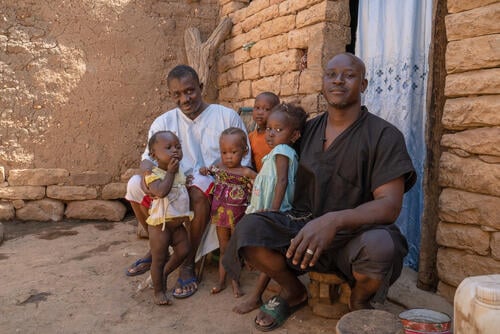
A.O., a farmer, has taken into his home people who have fled.
“Three months ago, 35 displaced people arrived at our house,” he says. “Even before they arrived, there wasn’t enough food. The new arrivals make this situation even more difficult, but we are doing everything we can to help them. Accommodating 30 extra people is not easy: six or seven sleep on the same mat, the women all sleep together in the same bedroom. When it rains, many people spend the night outdoors, standing up, because there is not enough shelter for everyone.”
Some displaced people have not found a space with host families and have had to take refuge in public buildings or in the bush. L.T., a displaced person tells us her story:
“The came into our houses and destroyed everything. We fled and after walking for two days, we arrived here in the middle of the night. Some of my loved ones have disappeared. I don’t know where they are. We are constantly on alert. We are scared that those armed men will come back to hurt us. We have nothing. We have neither clothing, food, money nor anywhere to stay.”
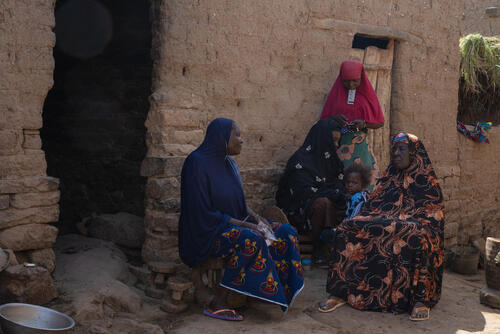
A perilous path to the communities
In the hospitals of the Koro and Douentza circles, MSF teams provide emergency medical and psycho-social care for people with injuries linked to the conflict. Patients suffer from bullet wounds, are the victims of improvised explosive devices or have been tortured, survivors of sexual violence, and have serious physical and mental trauma.
From June to October 2020 in Douentza, Koro, Bandiagara and Bankass, there were 82 attacks on villages, 68 other incidents and 21 population displacements, with a total of 222 civilians killed, according to MSF.
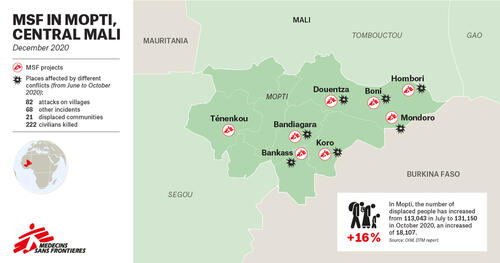
This level of violence also results in civilians finding it hard to access healthcare and this means that malaria, measles and the effects of malnutrition become fatal. From January to October 2020, in the MSF-supported medical facilities in the Koro and Douentza circles, our teams treated 57,547 people suffering from malaria.
Forced to move away because of the conflict, some pregnant women have given birth on the roadside. Others, traumatised by fear, have had miscarriages.Adiaratou D., obstetric nurse
MSF also undertakes emergency interventions in isolated or hard-to-reach localities. We provide medical and psychological support through our mobile clinics and other forms of care in the community. Again, from January to October 2020 in the Koro and Douentza circles, our staff gave 52,970 external consultations through mobile clinics. When our teams manage to reach the displaced persons in areas cut off by the conflict, they treat the wounded, vaccinate children and care for the most vulnerable, including pregnant women and nursing mothers.
Adiaratou D., an obstetric nurse, takes care of displaced pregnant women.
“Forced to move away because of the conflict, some pregnant women have given birth on the roadside,” he says “Others, traumatised by fear, have had miscarriages. One of the ways we care for them is by monitoring their weight and accompanying them during the birth. They are destitute, they don’t even have anything to eat or any clothes to change into or to cover themselves.”
Access to some areas remains blocked by the improvised explosive devices used against the security forces that have also resulted in many victims among civilians. This effectively restricts people’s access to basic services and vice versa. Access to aid remains one of the main concerns in this area so badly affected by armed conflict. Aid organisations that can play a role in improving people’s living conditions are subject to the same problems of access for reasons of safety, including armed hold-ups, detentions and unofficial checkpoints, mines and abductions.
We call on participants in the armed conflict to cease their abuse of civilians and to abide by the principles of international human rights by following the principles of precaution and distinction.Boulama El hadji Gori, MSF head of mission in Mali
MSF fears that the insecurity is not decreasing and is inevitably depriving more and more people of healthcare and humanitarian aid.
“In the light of numerous violations, Médecins Sans Frontières asks all stakeholders to respect and preserve the systems of aid, allowing them to provide vital help to communities affected by the conflict,” says Boulama El hadji Gori, MSF’s head of mission in Mali
“In addition, we call on participants in the armed conflict to cease their abuse of civilians and to abide by the principles of international human rights by following the principles of precaution and distinction. Finally, MSF asks that aid organisations extend their humanitarian response to the needs of this population, particularly in terms of shelter and food, and providing them with protection in the medium and long term.”
MSF has been working in Mali since 1985. Following the outbreak of the security crisis in 2012, we intensified our interventions in the regions of northern, central and southern Mali to meet the multiple needs of the communities affected by these events. We currently manage long-term projects in the regions of Kidal, Gao (Ansongo), Mopti (Ténenkou, Douentza et Koro), Ségou (Niono) and Sikasso (Koutiala), as well as in the capital, Bamako. Our teams also roll out numerous emergency interventions to meet the considerable needs of people in Mali.



